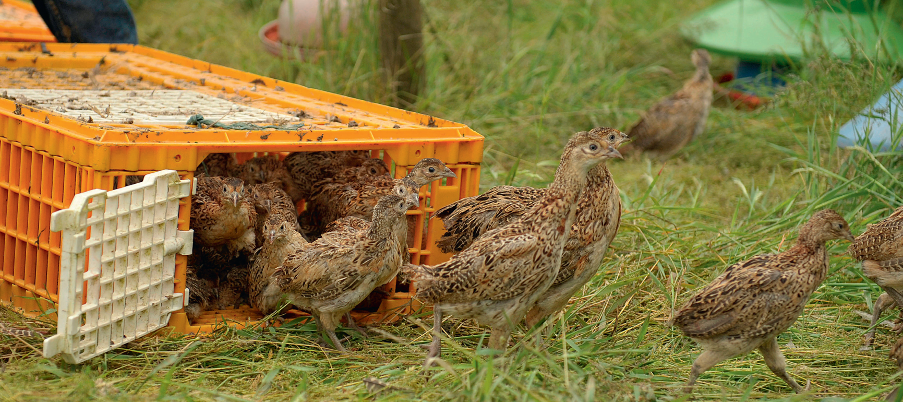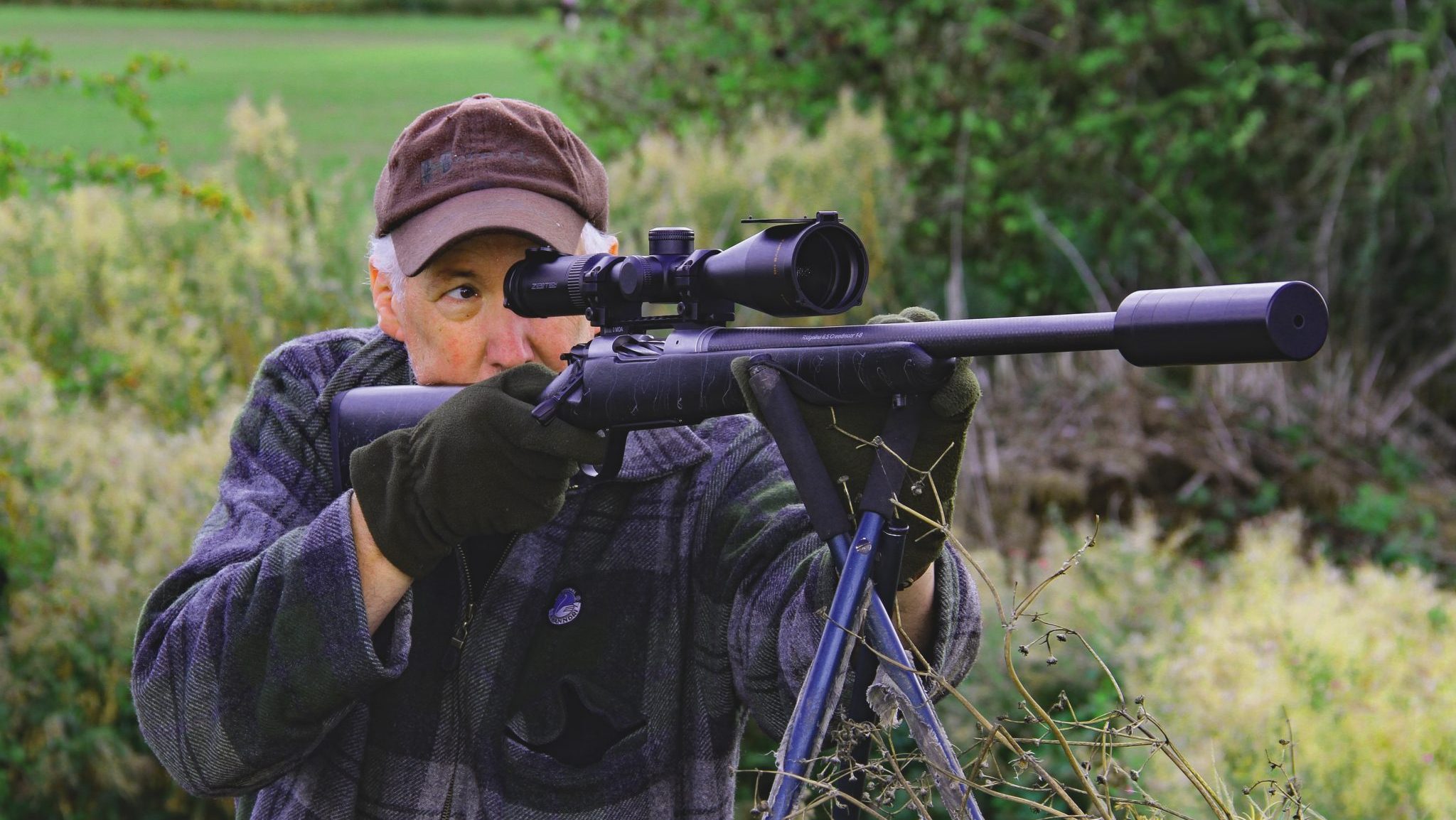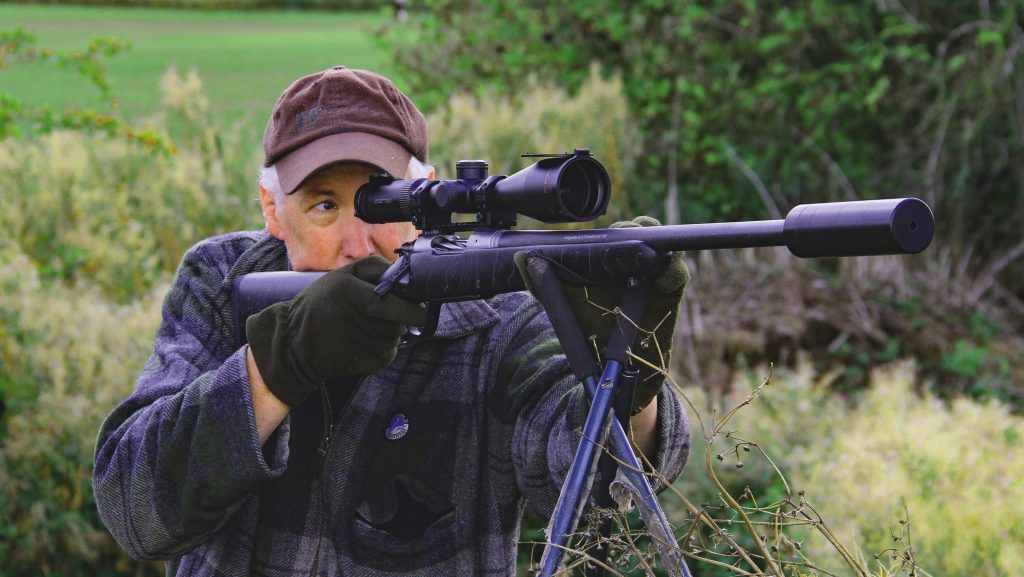★ Win a Schöffel Country shooting coat for everyone in your syndicate worth up to £6,000! Enter here ★
What next for the UK’s game farms?

It is beyond question that game farmers are a robust bunch. This embattled sector has had another year fraught with difficulties, but still they continue to catch-up, hatch and raise next season’s gamebirds despite the increasingly onerous but imperative burdens of biosecurity.
Since last autumn, the UK has been a mosaic of bird-flu-induced housing orders from Essex to Merseyside, with numerous control zones. At the time of writing, the whole of the mainland UK remains in an Avian Influenza Protection Zone, and bird flu was recently confirmed to have spread to a human in the West Midlands and a sheep in Yorkshire (News, p10)
The Government, meanwhile, continues to deposit fly after fly in the ointment of the shooting sector and has only recently reissued GL43, the general licence that allows the release of gamebirds on or within 500m of Special Areas of Conservation. Defra has stated that they will not release GL45 this year, which applies to the release of gamebirds on or within 500m of Special Protection Areas, which will add further uncertainty to a number of shoots (News, p6). These obstacles will no doubt trickle down to affect the stability of game farms.
Purpose-built
Some modern game farmers retain a breeding flock to produce their own eggs, while others buy eggs or day-old chicks and rear them on. The game farming year starts in February when laying birds are penned for mating and egg production. Their eggs are collected from April onwards to be hatched in electronic incubators and the chicks are then reared in purpose-built shelters where they are provided with food, water, grit and all their other needs.
Bryan Johnston, owner of Northern Ireland-based Wescom Incubators,
says that game farmers have faced a number of trials this season. He explains that the housing orders that were in place across parts of the UK due to bird flu were difficult to interpret.
These stated that birds in affected areas needed to be kept “under cover”. In some places this was understood to mean in netted pens, but in other areas it was communicated to refer to the keeping of birds fully indoors. This was a potentially costly difference and injected uncertainty into businesses.
Bryan has also said that many game farms have faced a tricky decision this year as to whether to bother incubating their own eggs or buying them in from the Continent. Bird flu across the Channel has kept the price of eggs high, and if there are further restrictions imposed on the import of Continental eggs as there have been in previous years, then game farmers may not be able to get hold of them at all.
This makes producing eggs in-house look like a safer prospect, particularly if you are a smaller shoot with a surplus of birds at the end of the season.
Hatch percentage
However, Bryan says that if you are producing birds for sale, then “every additional hatch percentage counts”. He continues: “This is where the French-produced eggs have the advantage. The major French producers have invested a lot of time and money in genetics to produce stock that will lay the maximum number of eggs with high levels of uniformity.”
Eggs that are the same size, colour and shell density will hatch in a small window and likely at a greater percentage than independently produced British eggs, consequently increasing profit margins. Bryan’s article in last week’s issue (Game, Set and Hatch, 26 March) discusses this.
Bryan’s final point concerns the difficulty of managing breeding stock on the ground this year due to the uncertainty over the future of raised laying units (RLU). An RLU is an outdoor enclosure for gamebirds, raised above the ground with a wire mesh floor, designed for easy egg collection. Among the anti-shooting lobby, this laying system is often conflated with the conditions experienced by battery hens, and there have been many attempts to legislate against them.
The attempts to have RLUs banned seem deeply illogical, as a Defra study showed that well-run raised cages do not compromise gamebird welfare and their proper use is consistent with good gamebird husbandry. Speaking in the House of Lords in opposition to Lord Randall’s Game Birds Bill in 2022, Conservative peer the Earl of Leicester said: “The health of the breeding birds is better in raised units as they do not come into contact with contaminated ground conditions, and eggs produced are always cleaner than floor-laid eggs and therefore have a significantly lower chance of yolk sac infection or other diseases such as rotavirus.”
Both of these factors have dramatically reduced the game farming sector’s reliance upon antibiotics, reducing the build-up of antimicrobial resistance.
Bryan says that the political uncertainty and likely legislative change regarding RLUs “is making game farmers reticent to invest in new systems”. He continues: “We need a concerted effort by all shooting organisations and vets to put forward the benefits of these systems. Birds in a well-designed and managed laying unit are healthier with greatly reduced reliance on medication. In these systems, they lay more, better-quality eggs, resulting in better hatches and stronger chicks.”
Biosecurity
Marc Brown, marketing and shoot sales manager at Bettws Hall in central Wales, shares that given the consistent issues with bird flu this season, it will be the game farms that have not been afraid to invest heavily in biosecurity that will prevail.
Marc says: “Each season we emphasise the incredible importance of ensuring your supplier is maintaining, if not exceeding, the
biosecurity and preventative methods required of them. At Bettws Hall, our hatchery is Animal and Plant Health Agency-approved, meaning we operate at the highest possible standards from start to finish.”
Mark adds: “No year is without the usual questions of bird flu, stock supply and prices, but the market is buoyant and confidence is high after a strong shooting season.”
Marc is careful to reiterate that Bettws Hall has been raising game successfully for over 30 years and is well-versed in navigating the annual concerns of the industry. Bettws Hall places particular emphasis on only working with egg suppliers who are as stringent with their biosecurity, bird welfare and traceability as they are.
Judy and Ole Gronning, directors of Heart of England Farms in Warwickshire, say that they have managed to hold all their livestock prices at 2024 rates due to their perceived reduction in risk to bird flu and inflationary pressures. They have also been able to maintain or even reduce manufactured laying and rearing feed prices for the coming season thanks to the favourable wheat prices, but they say that forward wheat prices, although currently steady, should be carefully watched as the “pendulum can easily swing when the price is unusually low”.
Lack of support
Judy also says that they are fearful that the UK market will become overly reliant on French egg suppliers for early and peak week supply. They worry this could lead to a lack of support for UK egg-producing game farms and hatcheries whose managers will continue to retire without replacement, consequently ceding the whole British market to French control. If, like three years ago, there is an import ban on French eggs, this could have dire consequences for the British shooting sector.
Judy says that they always have issues shifting stock born early or late in the hatching window, which they need to do if retaining their breeding stock is to remain viable. Judy offers a useful bit of advice suggesting that if the price of poults is looking unpalatable for some shoots, ex-layers can fly well when fed on a high wheat diet and that they are very favourably priced against poults this year.
Finally, Judy and Ole express that they believe the keys to success in game farming at the moment are to reinvest in your business to maximise growth for the following year and to build strong relationships with suppliers rather than dropping them if you find a deal for a penny cheaper elsewhere: “Cutting corners at any stage of game farm production will negatively affect you for an entire season but potentially a lot longer in loss of reputation.”
The sector is at the mercy of a great many variables from commodity prices to political agenda, however for now, diligent adherence to biosecurity, a conscientious approach to animal welfare and a beady eye on the economic and political climate seem like as good a place to start as any.
Related Articles
Get the latest news delivered direct to your door
Subscribe to Shooting Times & Country
Discover the ultimate companion for field sports enthusiasts with Shooting Times & Country Magazine, the UK’s leading weekly publication that has been at the forefront of shooting culture since 1882. Subscribers gain access to expert tips, comprehensive gear reviews, seasonal advice and a vibrant community of like-minded shooters.
Save on shop price when you subscribe with weekly issues featuring in-depth articles on gundog training, exclusive member offers and access to the digital back issue library. A Shooting Times & Country subscription is more than a magazine, don’t just read about the countryside; immerse yourself in its most authoritative and engaging publication.







